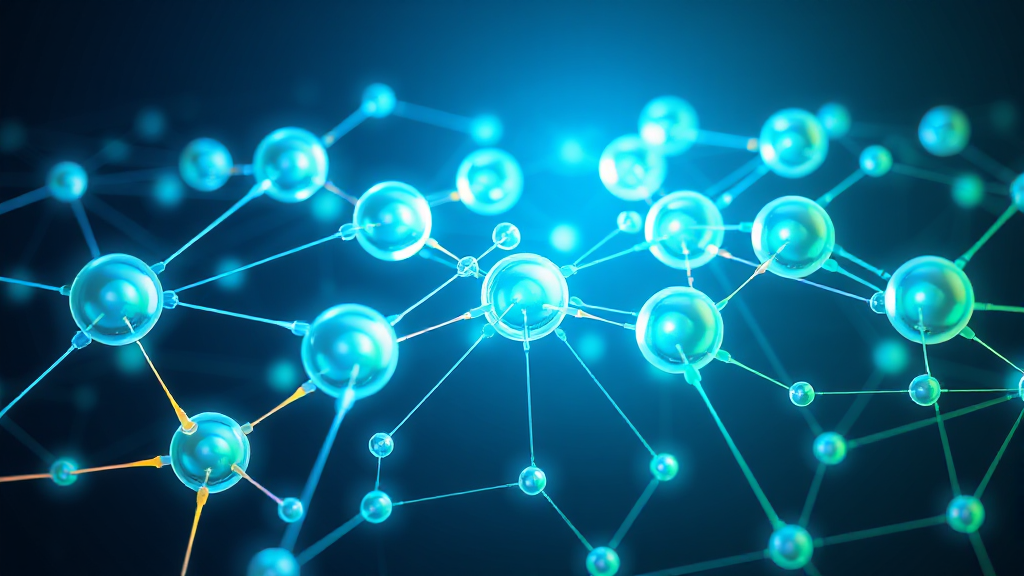Leveraging Advanced AI in Modern Robotic Programming: A Comprehensive Guide

For a deeper dive, see our
.
This image illustrates how AI-driven insights and TRON Blockchain's transparency synergize to enhance MLM solutions. The design highlights dynamic connections and growth.
Introduction
The integration of Artificial Intelligence (AI) through AI services into robotic programming has revolutionized the way industries approach automation and process optimization. By combining the precision of robotics with the cognitive power of AI, businesses are now capable of achieving unprecedented levels of efficiency, adaptability, and scalability. This article explores the transformative impact of AI on modern robotic programming, delving into its core components, applications, and future trends.
The Role of AI in Robotic Programming
Enhancing Automation Capabilities
AI plays a pivotal role in enhancing automation capabilities within robotic systems. By enabling machines to learn from data and make decisions without human intervention, AI services transform robots from simple automated tools into intelligent problem-solvers across web platforms, mobile applications, and industrial systems. This evolution is particularly evident in industries such as manufacturing, where AI-powered robotics can autonomously adapt to changing production demands, optimize workflows, and minimize downtime.
Real-Time Decision-Making
One of the most significant contributions of AI to robotic programming is its ability to facilitate real-time decision-making. Traditional robots follow predefined instructions, but AI-equipped systems can analyze dynamic environments, process vast amounts of data, and adjust their actions accordingly. This capability is crucial in fields like logistics, where robots must navigate unpredictable scenarios such as fluctuating demand or supply chain disruptions.
Machine Learning for Process Optimization
Machine learning (ML), a subset of AI, has become an indispensable tool for optimizing robotic processes. By training algorithms on historical data, ML models can identify patterns and inefficiencies that might be imperceptible to human operators. This leads to continuous improvements in robot performance, enabling them to execute tasks with greater precision, speed, and energy efficiency.
Applications of AI-Powered Robotics
Manufacturing and Industrial Automation
In manufacturing, AI-powered robotics have streamlined production lines, reduced error rates, and increased output. Robots equipped with vision systems can inspect products for defects in real-time, while predictive maintenance algorithms minimize equipment failures. These systems are often managed through web-based dashboards for real-time monitoring. These advancements not only enhance productivity but also ensure higher quality end-products.
Healthcare and Surgical Robotics
The healthcare industry has seen remarkable advancements through AI-driven robotic surgery. Robotic systems like the da Vinci Surgical System leverage AI to assist surgeons in performing minimally invasive procedures with exceptional precision. These systems analyze patient data, adjust instrument positions, and execute complex maneuvers that would be challenging for human hands alone.
Logistics and Supply Chain Management
AI is transforming logistics by enabling robots to optimize delivery routes, manage inventory, and sort packages with remarkable efficiency. Autonomous robotic vehicles, guided by AI algorithms, navigate warehouses and distribution centers for e-commerce platforms, ensuring seamless order fulfillment while reducing operational costs. Many businesses use mobile apps to monitor and control these robotic systems remotely.
The Future of AI in Robotic Programming
Integration with Internet of Things (IoT)
The convergence of AI services, robotics, and IoT promises to create a connected ecosystem where devices communicate and collaborate seamlessly. This integration will enable robots to collect and share data across networks, enhancing decision-making capabilities and enabling real-time adjustments to environmental conditions.
Advances in Natural Language Processing
Natural Language Processing (NLP) is opening new possibilities for human-robot interaction. Robots capable of understanding and responding to voice commands can perform tasks ranging from customer service to complex assembly line operations. This development makes robotic systems more accessible to non-experts, broadening their applications across industries.
Ethical Considerations and Challenges
As AI becomes more embedded in robotic programming, addressing ethical considerations is crucial. Issues such as job displacement, data privacy, and algorithmic bias must be carefully managed to ensure responsible innovation. Additionally, the development of robust security measures is essential to prevent potential misuse of intelligent robotic systems.
Conclusion
Ready to take the next step?
.
The fusion of AI and robotic programming represents a paradigm shift in how businesses approach automation and efficiency. By leveraging advanced AI techniques like machine learning and natural language processing, robots are becoming smarter, more adaptable, and capable of performing tasks that were once thought impossible. As this technology continues to evolve, it will unlock new opportunities for innovation across industries while presenting challenges that require thoughtful consideration. For businesses looking to stay competitive in an increasingly automated world, investing in AI-powered robotic systems is no longer optional—it's a necessity.
About EifaSoft
EifaSoft specializes in delivering cutting-edge AI and robotic programming solutions tailored to meet the unique needs of our clients. Whether you're looking to optimize your manufacturing processes, enhance healthcare outcomes, or streamline logistics operations, EifaSoft has the expertise to help you achieve your goals. Contact us today to learn more about how we can drive innovation in your organization.
Related Articles
Understanding the Importance of Robotic Programming in MLM Software Development
Discover the power of robotic programming in MLM software development! Learn how automation and scalability can revolutionize your network development and take
The Strategic Power of Content Strategy Consulting: Elevating Your Digital Presence
Here's a concise and compelling SEO meta description: Transform your digital presence with AI-driven content strategy consulting. Discover how expert insights
The Role of Digital Transformation in Modern Business Success: A Deep Dive
Unlock the secret to modern business success! Discover how AI-driven insights and interconnected data streams drive growth and efficiency through our ultimate g